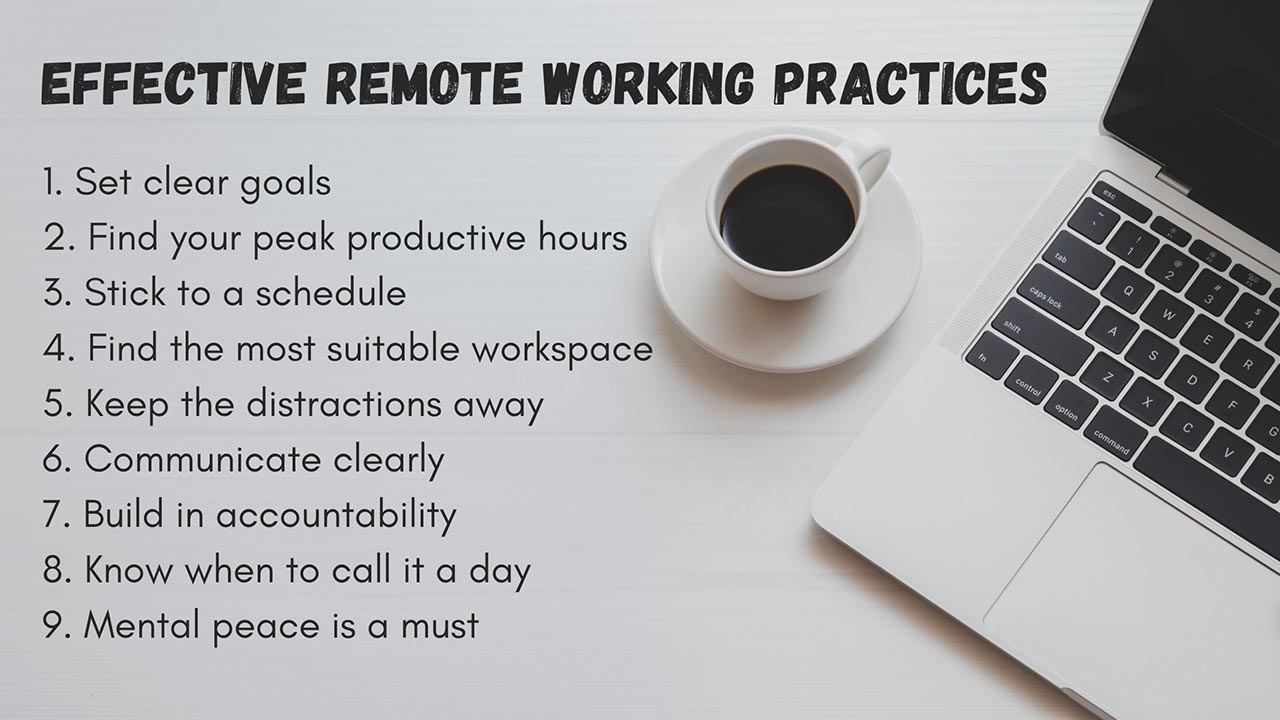Best Effective Remote Working Practices
When Elon Musk took over Twitter, his first step was banning remote work and ordering all employees to work from the office. Not long after, he took his word back, announced to shut their Seattle office down, and instructed employees to shift to work-from-home completely.
Remote work is all the rage these days. Although it's not new, it's just newly widespread. According to stats, while only 5.4% of employees were working remotely pre-covid-19 period, today, as of 2023, 16% of the companies around the globe have entirely adopted the work-from-home model, while 40% are following the Hybrid work model.
The number of people working from home tripled between 2019 and 2021. This significant shift in remote work has been mainly due to the Covid-19 situation, and this trend doesn't seem to pause anytime soon.
Remote work brings convenience and saves time. However, it can sometimes become hard to manage. One out of every three remote-working people has reported burnout and time-management issues. Better time management is key to success when working remotely.

A handful of effective remote work practices below can help you become more productive and better manage your remote job.
- Set clear goals
- Find your peak productive hours
- Stick to a schedule
- Find the most suitable workspace
- Keep the distractions away
- Communicate clearly
- Build in accountability
- Know when to call it a day
- Mental peace is a must
1. Set clear goals
In the office, we are managed mainly by our managers and seniors. In remote work, for the most part, we are the ones who are responsible for governing ourselves.
It's not easy to manage ourselves. However, setting explicit goals for the day before starting work can help you manage your job more efficiently.
Explicit goals are specific, for example:
A common goal is to finish tasks A and B today. An explicit goal would be 'to start working on task A 10 o'clock onward and complete it within X hour, and something similar with task B'.
Setting clear expectations for yourself makes it more likely to be accomplished within the expected time.
2. Find your peak productive hours
Some of us are night owls; some are early risers, while most are in-between somewhere. You might find yourself most productive in the morning. I find myself delivering the most quality work in the evening.
We all have productive hours where we naturally work more and better.
Track your time for a week, find out what your productive hours are, and get the most quality work done during those hours.
3. Stick to a schedule
One of the good things about remote work is flexible working hours. Although, not following a proper work schedule can lead to immense unproductivity and, sometimes, even burnout.
A proper work schedule is essential in remote work, even if your work doesn't necessarily demand it. Now, you know your most productive hours. Set up your most important task during those hours.
Starting work simultaneously every day gives an essential sense of discipline.
4. Find the most suitable workspace
Some call it remote work. Others call it work-from-home. What do you like to call it? I prefer calling it remote work, as it doesn't necessarily need to be done from home.

People are working from strange places. From Yachts to Trains to shared workspaces, to name a few. John O'Nolan, the founder of ghost.org, has been on the road as a nomad for more than ten years. In a podcast, he said he has been living on a sailboat and growing his company.
Remote work has allowed working professionals to travel around the world while doing their jobs.
Whatever workspace you choose, stable or constantly changing, must be suitable for you to work effectively and conveniently.
5. Keep the distractions away
In an office environment, it is hard to be distracted as everyone is constantly working, and you also naturally tend to work.
However, while working remotely, we have our phones on our desks, TV in our room, dishes to wash in the kitchen, and one hundred other distractions.
Hide your phone in the cupboard, and check it only when you take a break from work.
Before you start working, keep these little demons away from your workspace.
6. Communicate clearly
Around 44% of companies around the globe still don't allow remote work. What could be the reason? The biggest reason is the 'lack of clear communication.' They say only 8 percent of the communication is done through voice, and the most significant portion is done via body language.
It's not easy to communicate effectively when everyone is working remotely and hiding their body language by turning off cameras during meetings. You should have better communication when working remotely. Turning on the camera while meeting can help communicate better. Making important notes during sessions will help ensure something important doesn't slip your mind.
Additionally, being in constant touch with colleagues can fulfill this large communication gap and make remote work more effective.
7. Build in accountability
My boss once said, "even if you are assigned a work casually, you should never take it casually. This is accountability that eventually results in credibility." As an employee, your performance can be ignored, but it is accountability that builds trust.
While working remotely, it becomes hard for employees to maintain accountability and be entirely responsible, as nobody is constantly watching them. However, you should always be accountable and try to improve your actions!
8. Know when to call it a day
Working from home makes it easy to forget the boundaries between your personal and professional lives. Surveys have revealed that remote workers are more productive than those their office-going colleagues. However, this leap in productivity comes at a cost.
Remote workers, on average, work an hour longer per day than those their office and hybrid counterparts. This may lead to health issues, stress, and burnout.
Doing household chores in in-between office work is something that a good number of remote workers prefer doing. This thing often leads them to work all day and night long.
It's a good practice to have a specific start time to work, a fixed time to call it a day, and do just the work in between like you would if you were in the office.
9. Mental peace is a must
Working remotely saves time and makes us more productive. Is there a price to pay? Yes, there is.
Working remotely doesn't allow us to chit-chat with our colleagues at the water cooler, have lunch together, make deep-friendly connections, gossip, or have conversations in the elevator and at office events. These are great things to relax and lighten your mood.
Lack of these activities can lead remote workers to stress and sometimes burnout. A common problem reported by many remote workers is burnout.
Starting your day with exercise and yoga, and turning off all your devices at least one hour before going to bed, can significantly reduce the possibility of stress and burnout.
Also, don't forget to draw a clear line between your personal and professional lives.
Moving forward
Like any other thing, remote work has many benefits that come at a cost. Spending more time with family arrives at the expense of no time with colleagues. Delivering more work comes at the cost of working longer than office timing. The best practices presented in the article can reduce these costs and make your life better.
